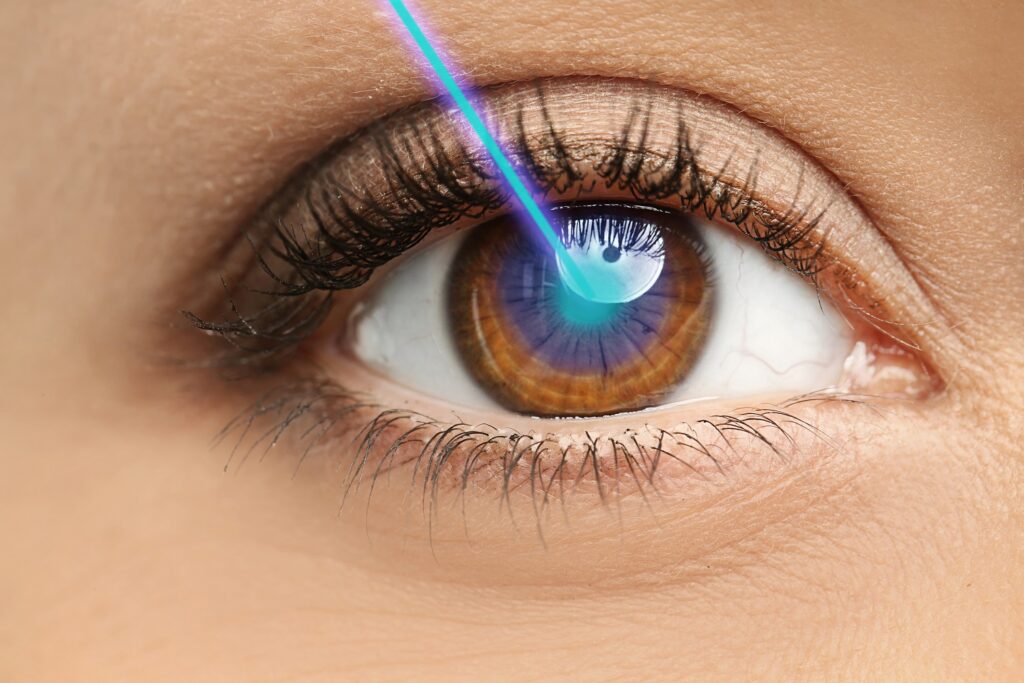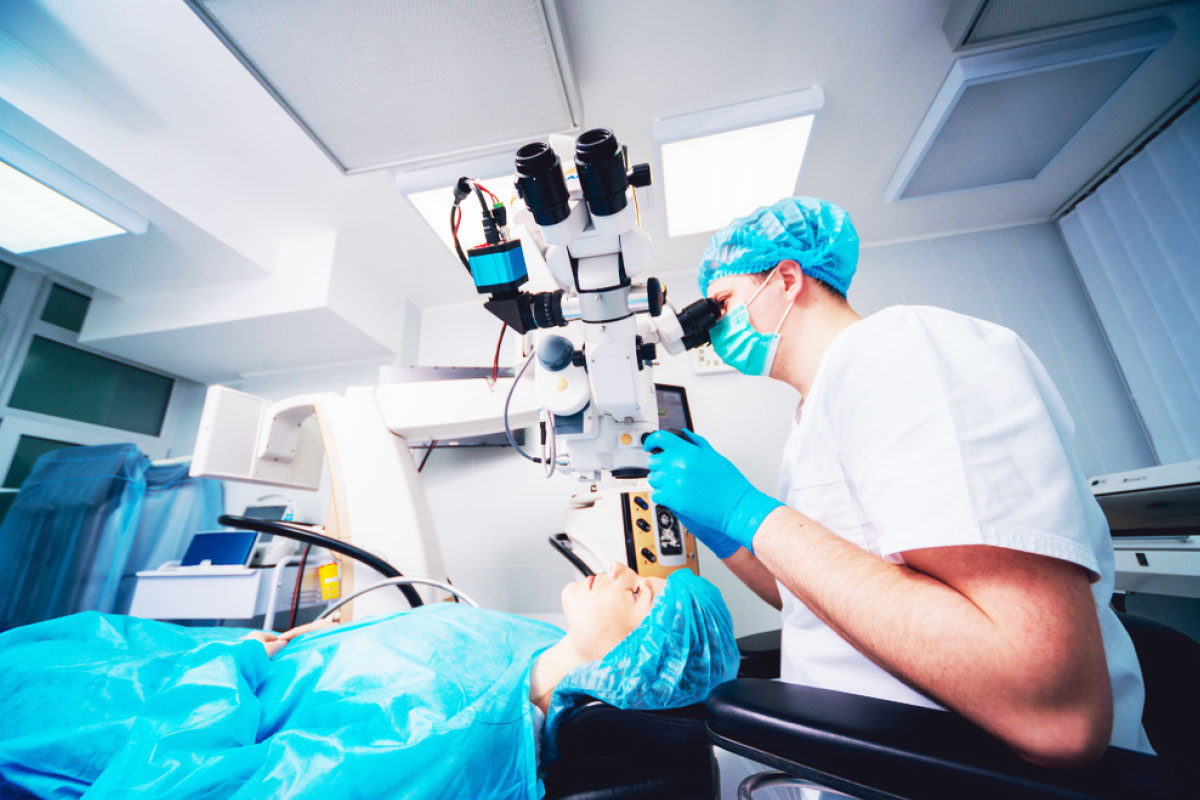The laser eye surgery procedure is very common and safe. However, before you have a doctor perform laser eye surgery on you, it’s best to understand the process. That way, you have realistic expectations and go into the process as prepared as possible.
Getting laser treatment can help you get over various vision problems. But to help you understand the process better, we’ve created this comprehensive guide of what to expect during LASIK eye surgery.
Aside from talking about the best laser eye surgery process, we’ll answer some of the most common questions patients have about the procedure.
By the end of our guide, you’ll have all the information you need to book your first consultation with your doctor.
Read on to learn more.
Why Get Laser Eye Surgery?
You may be wondering why you’d want to invest in laser eye surgery in the first place. So, before we get into what happens during the procedure, let’s talk about the benefits of getting laser eye surgery.
When you get laser eye surgery, you can say goodbye to contact lenses and glasses. On top of that, it’s a quick and painless procedure that offers long-term vision correction. So, if you’ve been wearing contact lenses or glasses for a long time and you’re ready for a change, it might be time for you to consider laser eye surgery.
What to Expect During Laser Eye Surgery
Laser eye surgery procedures are relatively simple. These are minimally invasive surgeries that don’t take too much time. However, even if the procedure is really simple, there are some things you need to expect before, during, and after the operations. To help you build realistic expectations, here are some of the things you can expect from laser eye surgery.
Before the Procedure
Every laser eye surgery, whether it’s LASIK, small incision lenticule extraction, or cataract surgery, involves a consultation. During the consultation, the doctor will determine if you’re a good candidate for the surgery, assess your condition, and create a solid plan to follow when performing the operation.
The consultation is a very important phase in the vision correction process. For the surgery to be effective, the laser eye surgeon needs to determine the severity of your condition, conduct accurate measurements of your eyeball, and create a clear methodology to follow when you go to the laser eye clinic.
Typically, the doctor will ask you not to wear contact lenses and to regularly use specific eye drops in the days leading up to the surgery. Additionally, you may have to stop taking certain medications to avoid any complications during the surgery.
The Day of the Operation
You won’t need to worry about that much during the day of the operation. Again, you won’t feel anything during the procedure. This is because the doctors apply a local anaesthetic before the surgery. That way, you don’t feel anything when the femtosecond laser creates the corneal flap.
Once they create the flap and start the uneven tissue removal, you also won’t feel anything. In fact, these vision correction procedures only take a few minutes. So, you can expect everything to be over in less than an hour, and you won’t feel a thing during the refractive surgery.
That said, you will have impaired vision right after the surgery. While you won’t feel any pain, you may have a hard time seeing and performing certain tasks. So, it might be best to have some assistance in the hours right after the surgery to remain as safe as possible.
Recovery
The recovery and healing process of laser eye surgery is really simple and quick. Typically, you’ll be able to see clearly just 24 hours after LASIK surgery. However, it takes about a week for your eyes to recover from the procedure. During this period, it’s best to avoid contact sports, strenuous activities, and rubbing your eyes. Additionally, we recommend keeping your eyes as clean as possible to avoid infections and other complications.

Are There Risks to Laser Eye Surgery?
While LASIK surgery is relatively safe, there are certain risks involved. While the computer-controlled excimer laser used in eye surgery is very precise, your doctor may make some mistakes during the measurements. While this is rare, it can result in an over or under-correction of your vision.
Additionally, there is always a risk of infection after laser eye surgery. This is why laser eye surgeons give a list of things and best practices to follow to reduce the risk of infections.
Despite all these risks, you can trust that vision correction surgery is one of the safest procedures available. When undergoing laser procedures, you won’t feel any pain, and if you have a good laser eye surgeon, rest assured that the healing process will be very smooth.
Will I Still Need Glasses or Contact Lenses After Laser Vision Correction?
If you undergo laser eye surgery for your vision problems, you don’t have to wear glasses or contact lenses ever again. This procedure is designed to correct refractive errors like long-sightedness and short-sightedness. While the healing process takes at least a week, most people report that they feel the difference in their sight a day after the surgery.
Laser Eye Surgery Cost
Laser eye surgery is a pretty pricey procedure. While it’s very effective and doesn’t take that long, most procedures cost between $2,600-$3,700 per eye. This means that you will have to save up a fair amount of money for laser eye surgery. However, rest assured that the procedure offers many benefits, so it’s a worthwhile investment in your long-term eye health.
Conclusion
If you have vision problems like distance vision, long-sightedness, or blurred vision, you could get laser eye surgery to correct the problem. This is a very simple procedure, but it’s very important that you go into the operation with realistic expectations. So, now that you understand what happens during laser vision correction, it might be time to speak to your doctor about your options.

Leave a Reply